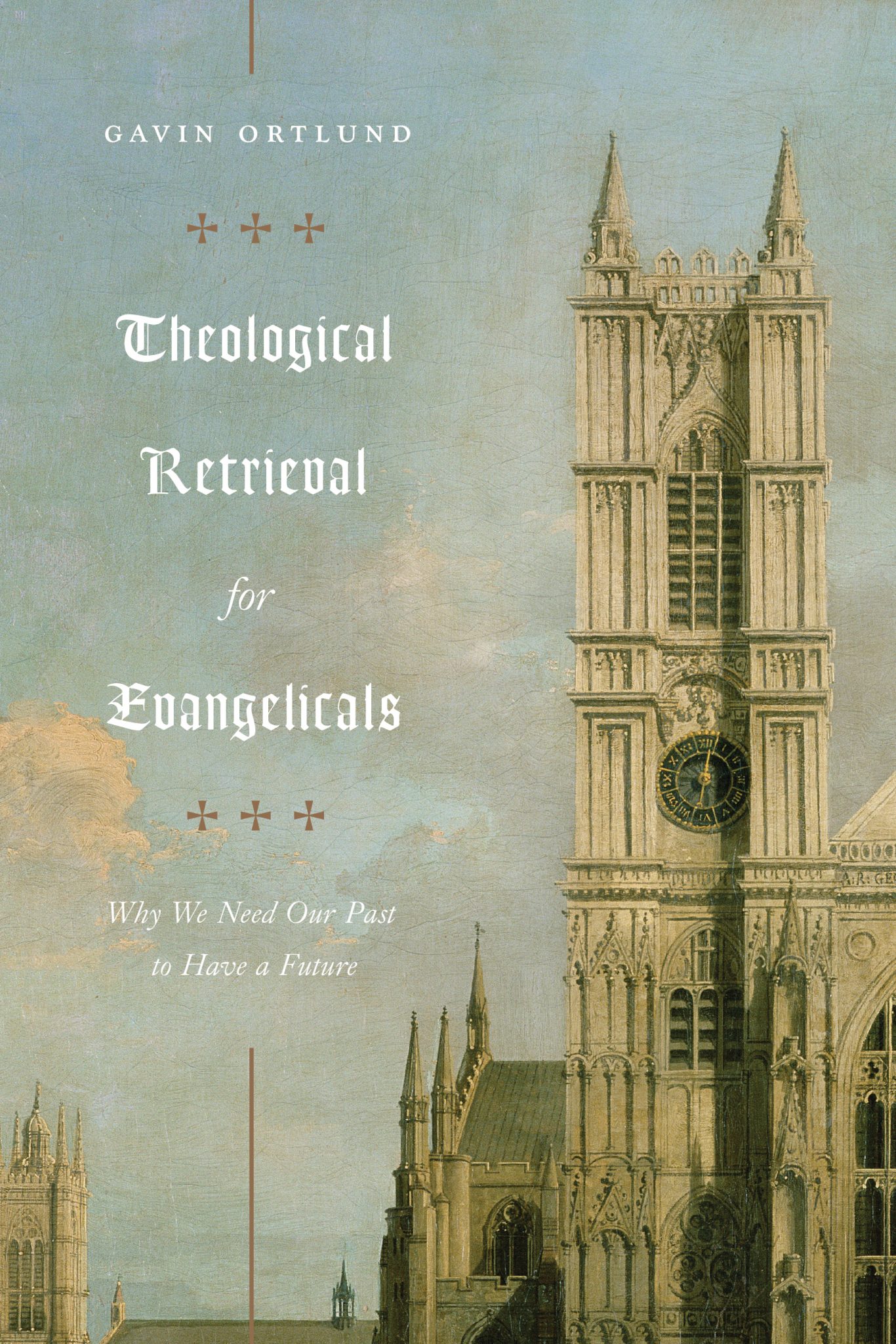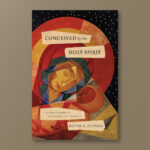I’m often asked in my church history and theology courses, “Why does this class matter for the pastorate? Or on the mission field? Or in my home?” The idea that historical theology can influence or transform how we minister, proclaim the gospel, plant churches, or raise children is foreign to many of my students and, if we’re honest, foreign to many American evangelicals. Sometimes this attitude arises from a kind of latent reaction against Roman Catholicism, and anything prior to the Reformation is viewed under a “fall of the church” paradigm (19). Other times, it arises from a more pragmatic focus: we just can’t see the “cash value” of studying church history or historical theology, especially prior to Martin Luther.
In his new book, Theological Retrieval for Evangelicals: Why We Need Our Past to Have a Future, Gavin Ortlund—senior pastor of First Baptist Church of Ojai in Ojai, California—wants to help evangelicals understand exactly why and how historical theology matters for the life and health of churches. He argues that “the affirmation of a robust Protestant identity need not prohibit, but should rather encourage, an appropriation of the wisdom of the early and medieval church” (20). In other words, as Protestants we have every reason, right, and compulsion to study historical theology.
Proper Catholicism
Theological Retrieval is divided into two main parts. In Part I, Ortlund gives “A Manifesto for Theological Retrieval,” while in Part 2 he works through case studies of theological retrieval. Ortlund’s primary aim in Part I is to show evangelicals why they not only can (chapter 1) but should (chapter 2) retrieve patristic and medieval (along with reformational) theology. He also details the benefits and perils of retrieval in chapter 3.
In the first two chapters of this section, Ortlund is keen to provide a better model for viewing the past than the common anti-Roman Catholic suspicion of anything prior the Reformation that pervades much of evangelicalism. He contrasts the approach of B. B. Warfield, in which “Protestant theology is the castle in which we safely live: patristic and medieval theology is a dark forest surrounding the castle into which we may occasionally venture,” with “a more inclusive approach in which all 2,000 years of church history function as our most basic theological community, and Scripture alone stands above as our authoritative norm” (30).
This more inclusive approach is modeled, according to Ortlund, by the likes of John Calvin, Martin Luther, Francis Turretin, and John Owen. Instead of viewing historical theology prior to the Reformation as extracting leavened bread from the unleavened, as Warfield does, the reformers and many of their heirs give us warrant to acknowledge a “proper catholicism,” one in which we can affirm “the preservation of the church in every generation,” draw “widely from the wisdom of earlier generations,” and sum up “their own goal as returning to the purity of the early church” (43).

Theological Retrieval for Evangelicals: Why We Need Our Past to Have a Future
Gavin Ortlund
Theological Retrieval for Evangelicals: Why We Need Our Past to Have a Future
Gavin Ortlund
Evangelicalism is not commonly known for mining the rich theological heritage handed down from previous generations. Instead, it tends to follow what, in the worst cases, can look like a “me and my Bible” approach to theology. But lately there has been a restlessness among evangelicals—an aching for theological rootedness that has led some to abandon Protestantism altogether. This book aims to set forth a vision for how engaging historical theology can enrich and strengthen the church today—and highlight how it can be done without abandoning a Protestant identity.
But Ortlund doesn’t stop with the idea that evangelicals can retrieve patristic and medieval theology; he also wants to argue we should do so. He uses the ongoing departures from Protestantism to Rome and the 2016 Trinity debate as examples pointing to a lack of historical-theological depth among many evangelicals. Ortlund says of this historically shallow practice of the faith that
to the extent that evangelicals adopt a kind of “me and my Bible” theological method, as though theology can be done without appropriation of the battles and settlements of earlier generations, we diminish and destabilize our witness. (57)
You need Christian voices of the past to address your theological and pastoral present and guide you into your theological and pastoral future.
Instead,
we can and should strengthen the vitality of evangelical Protestantism by thinking about our one historical identity with greater scrutiny and self-awareness and doing theology with more self-conscious engagement with the classical creeds, confessions, and theological texts of the church. (57)
In other words, evangelicals need to retrieve patristic and medieval (and reformational) theology so that they both (1) avoid the pitfalls of past theological reflection and also (2) learn from the wisdom of past theological reflection.
In the final chapter in Part I, Ortlund outlines the benefits and perils of retrieval. Regarding the former, he uses three metaphors: going to school, traveling to a foreign country, and seeing a counselor (68). In other words, tradition can teach us what we don’t know, can place us in an encounter with someone who thinks differently than we do, and can provide spiritual resources for present pastoral concerns. The pitfalls Ortlund mentions are distortion, in which we distort the past to fit the present; artificiality, which is akin to proof-texting but with historical theology instead of the Bible; repristination, in which we paper over the problems with a past figure’s position; and minimalism, in which we attempt to minimize disagreement between different historical figures or periods. Ortlund ends this chapter by exploring three neglected figures: Boethius, Gregory the Great, and John of Damascus.
Part II is a bit larger than Part I, but consists entirely of case studies in theological retrieval. Chapters 4 and 5 attempt to retrieve aspects of the patristic and medieval doctrine of God, namely the Creator/creature distinction and divine simplicity. Chapter 6 places the atonement doctrines of Irenaeus, Anselm, and Athanasius in conversation in order to address current controversies over atonement models, while the final chapter retrieves Gregory the Great’s insights regarding the pastoral office.
Theological Retrieval and Evangelical Theology
I can’t recommend Ortlund’s book highly enough for evangelicals—especially those who feel an aversion to appreciating anyone who precedes the reformers aside from Hus and Wycliffe. This book can and probably will convince you that you need Christian voices of the past in order to address your theological and pastoral present, and to guide you into your theological and pastoral future.
As Protestants, we have every reason, right, and compulsion to study historical theology.
Ortlund thoroughly debunks the “fall of the church” myth that still pervades our Christian subculture, both through thinking along the grain of Scripture about “guarding the good deposit” and also through forcing us to read the reformers’ words regarding how they felt about the communion of saints that came before them. He also demonstrates how retrieving the voices of the past can speak to our present through relevant, documented examples. The one perhaps most familiar to this audience is the 2016 Trinity debate; as Ortlund observes, many in that conversation, and particularly those in favor of a functional subordinationist position, would have benefited from retrieving the classical doctrine of God, especially with respect to the Creator/creature distinction and divine simplicity.
Ortlund also adeptly offers many relevant examples of retrieval, from ones used to bolster his points throughout Part I to the four case studies in Part II. If you want method in action, this book is it. Although I have a few questions (e.g., does the cultural landscape he describes fit the majority world church [60–66]? If not, what does retrieval look like for them?) and minor disagreements (e.g., I tend to think the Tolkien analogies in chapter 4 break down much quicker than stated), I want to again commend this book without reservation and with enthusiasm. To state it as strongly as possible, we need this book, and Ortlund is the perfect person to have written it. Evangelicals need historical theology, and we neglect it to our peril. Rather than seeing ourselves as cut off from the pre-Reformation church, we should think together with the communion of all the saints throughout space and time, under the Lordship of Christ, exercised through his Spirit-inspired Word, to the glory of the Father.
Related:

































